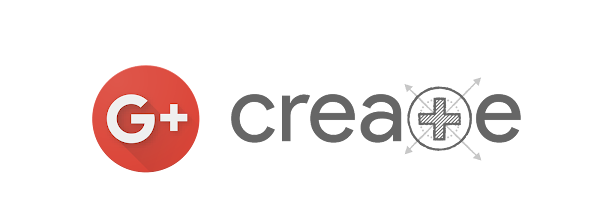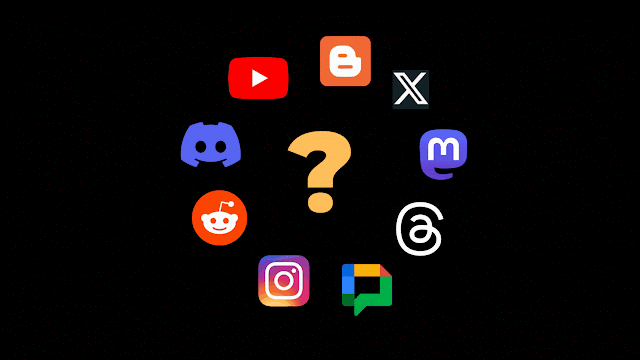Five years ago today Google+ shut down and I still haven't found a social media platform that's "home" in the same way. And I don't expect I will.
Five things I've learned
- Every platform works a bit differently, and there is no way to exactly reproduce a social experience in a new place.
- People tend to stay where they are, follow lots of profiles, and rarely unfollow. But these aren't deep connections, and followers mostly won't move with you to a new platform (at least that's the case if you aren't famous).
- If you are creating content, it's a good idea to have your own domain and website as your home base. You may change social networks, the algorithm may turn against you, and so it's one place people can always find you.
- Small private communities can be more fulfilling than large public communities.
- I am looking to a future with social sites with federation.
Google+'s sudden demise
The death of Google+ was both prolonged and quite short.
On the one hand, it felt like usage was declining, and spam was rising. On the other, Google+ had a creator program that was trying to build the "new Google+" into a welcome space with collaboration. community, content collections and creativity.

|
| Google+ Create Logo |
I was surprised when the shutdown was announced in October 2018, but figured there was some time to plan where to move on to before Google+ closed in August 2019.
And then in December the shutdown was pushed forward to April.
That meant that instead of 7 months, there were only 3 months to try to shift to a different platform where I could still connect with my circles and maybe bring along some of my followers.
On April 2, 2019, Nina Trakova hosted an epic "farewell" live stream. I talked about where I was planning to move to online, and I thought it would be interesting to compare to where I am now.
I noted:
- I had a Twitter account, but that wasn't great for conversation
- I had an Instagram and Facebook account, but I used that for sharing personal things, not the tech stuff I shared on Google+ (and here)
- I had joined MeWe and Pluspora, but hadn't really used them
And, a lot has happened since then.
My Own Site, My Own Space
I feel fortunate that I set up this site in 2013. Even before the shutdown of Google+ was announced, I had started posting more content here.
But it was still closely tied to Google+. I spent a considerable amount of time in the first part of 2019 removing many many links to my Google+ posts.
And while it's great to have my own site, and I deeply appreciate my readers (and commenters!) it's not a community.
MeWe and Pluspora weren't what I was looking for
On MeWe, I joined a couple of communities run by ex-Plussers and posted sporadically. But I never really got into it, in part because content was not public, and because the folks I engaged with the most on Google+ weren't there. Since then MeWe has enabled (optional) public profiles, and is pushing to move to the Frequency blockchain (which seems so 2023). I don't think it's for me.
Pluspora was on the diaspora decentralized social network platform. It lets individuals to run their own servers with their own rules. I didn't really get into it either. Pluspora shut down in 2022.
Truth be told, I was pretty tired of social media, and my closest Google+ connections were scattered across the internet.
I did keep up my Twitter account, and that became my main social site for tech stuff.
And I had a renewed focus on my YouTube channel.
And then COVID
As the one year anniversary of the Google+ shutdown approached, I was thinking of writing up a retrospective. But then, in March 2020, COVID shut everything down. I never did write that retrospective.
Everything moved online. And there were suddenly tons of online meetups and classes and conferences.
My YouTube channel got a big boost as people were looking for information on how to manage their online services.
And online communities on Discord, Reddit and elsewhere grew.
Four years later and most events are now in person. But many people are still working from home, there are hybrid events (with both online and offline attendees) and some of those online communities are still going strong.
Twitter became X and the number of social sites exploded
I originally set up my Twitter account to automatically reshare links to my Google+ posts.
But even before Google+ shut down I had started posting directly on Twitter, and that became my main social site.
But nothing stays the same. In 2022 Twitter was taken over by Elon Musk, who fired most of the Twitter employees, brought back accounts that has been removed for violating Twitter's policies, and ultimately renamed it "X". Journalists and critics have had their accounts banned and unbanned, and it's pretty clear that the platform is for speech Musk likes.
A bunch of competing sites launched and many people have moved on. Some people are mostly focused on Facebook or Instagram; others use Twitter-like platforms such as Meta's Threads, or Mastodon, or Bluesky (or Spoutible or Post.news or other small platform); some are focused on private or semi-private communities on Discord; and many have just taken a time out from social sites altogether.
No one platform to rule them all
Google+ was originally designed to be a social layer across all your Google products and services. That turned out to not be that appealing to most people.
Circles were meant to be a way of organizing your social interactions on Google+ so that you could share with different groups - one post for family only, another for your friends, maybe another for your co-workers and then public posts for everyone to see. But many people found that to be complicated.
Google+ didn't work well for people who used different identities. While Google+ wanted people to use their real names, some people are better known by their gamer handle or pseudonym. And you might use a different handle with different social groups.
And while I'm the same person on Instagram and YouTube and Twitter/X; I share different content on each platform. I don't think there will ever be a platform that's really good at both video and text.
Facebook is the closest thing to a "universal" social platform in the US, and I think that's mostly an accident of history. Many people use Facebook because it's used for groups and events or by remote friends and relatives, and they aren't looking for a replacement.
I currently find myself reading family announcements on Facebook, following friends and local businesses on Instagram, getting into science and science fiction on Bluesky, reading about the news on Threads, getting updates on X, joining hyper-specific communities on Reddit, watching interesting videos and live streams on YouTube and participating in private communities on Discord and Google Chat. I get blog post-like email newsletters and follow blog feeds.
On the one hand, that's exhausting. On the other, I kind of like the compartmentalization.
It feels like a bit of a throwback to the earlier days of the web, when there were multiple forums and communication was by email.
And it's hard to imagine a single platform that does all of that well.
Is federation the future?
One thing that has come out of that explosion of social sites is a new focus on federation.
The idea is that federated social platforms can interconnect with each other. People only need a profile on one platform to follow and engage with people on multiple platforms.
Mastodon, founded in 2016, got a big boost with the changes on Twitter/X. Like diaspora it's a distributed social network with multiple servers, but it can federate with other platforms using the ActivityPub protocol.
Meta launched Instagram-linked Threads in July 2023, populating the network with people's Instagram connections. Just a few weeks ago they let people enable ActivityPub-based federation. That means that you can post on Threads, and someone on Mastodon (or other ActivityPub platforms such as the Reddit-like Lemmy) can read and like the posts. The ability to follow Mastodon or other accounts in Threads should be available in the future.
Bluesky uses the ATf protocol for federation, and allows customizable moderation.
I'm kind of excited by the idea of only having to create one social profile, on my platform of choice, and then being able to easily follow people who are on other platforms.

|
| My Threads post was liked by 9 Fediverse users. Very cool! |
I am hoping that this trend continues.
Where is everyone now?
My Google+ network has scattered across the web:
- I still meet up with Google+ friends as part of OnEBoard, with private hangouts, public Twitter chats, and live streams.
- Some people are primarily on Twitter/X, Instagram, LinkedIn, MeWe or other platform.
- Some I chat with privately, but don't really interact with on social media (often because they aren't there any more).
- Some I see over on YouTube, especially when I live stream.
- Others I've lost touch with completely.


It was a nice article. I miss the old, original and tolerant version of the internet. I miss the times when people created content not to make money but to create value.
ReplyDeleteI'm not sure if the internet was ever particularly tolerant. There was lots of drama in the old days. It is too bad that every it feels like everyone is expected to turn their hobbies into money. On the other hand, there's a lot more entertainment than there used to be.
DeleteI understand how to make money online. Of course they will win. But when they win, let them win appropriately. I am against people marketing themselves on Instagram. Of course the internet is fun, I agree. But I don't find people who make weird TikTok videos or YouTube videos entertaining, on the contrary, I find them repulsive.
DeleteThere's still a chance if we identify a G+ like platform to point to it and give orientation to the children. Tell them: here's the value to reinvent your better self into a humble digital citizen of The Internet together with everybody else across the globe. We live in times when fantasy books become reality so why not believe in a future G+ revolution on social media. Thank you for writing this overview, Peggy! It's a priviledge to work together as part of the OnEBoard practice.
ReplyDelete🥰 It makes me happy that we are able to continue that. I think there will be new places and platforms in the future, not the same but maybe better.
DeleteI miss that G+ pulled together 'random' people across the world, and across widely varied interests. I still quote the man from Chicago (he walking his young son in ICE and snow) and I, as he said 'way down South in Africa!'
ReplyDeleteI started my blog with the Blotanical community - that folded, but it was wonderful to have techie help when I desperately needed it. Now I lean on you for that.
I have a few groups on FB.
But most of my online time is now at iNaturalist. A huge international group, focused on nature, but again ranging from serious scientists to What is It pictures.
Once I read about 100 blogs, now dwindled to less than 30.
I met people from all over the world from Google+, which was amazing. It's interesting that you say you read fewer blogs. I've been subscribing to various newsletters, which all have RSS feeds and post pages, which is very blog-like. I read them in Feedly, along with my other feeds. So it feels like that kind of posting is coming back into fashion.
Delete